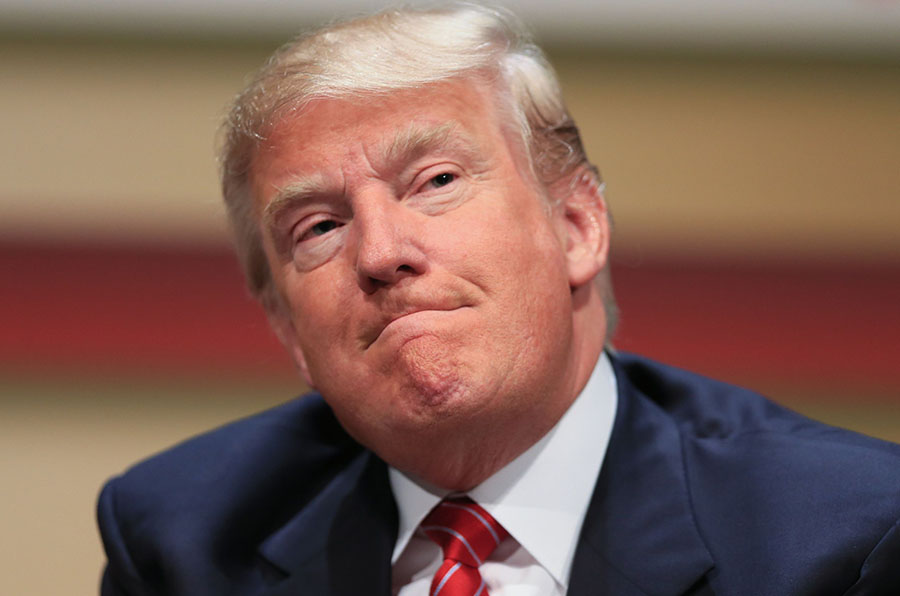
- The Washington Post writes for almost four decades, the United States has upheld its commitment to help Taiwan provide for its own self-defense against China — but the Trump administration has yet to affirm it. As a planned arms-sales package lingers in limbo, officials, lawmakers and experts worry that President Trump may be granting yet another unreciprocated concession to Beijing. The relatively small sale to Taiwan — worth just more than $1 billion — was set to go in late 2016, but the Obama administration never pulled the trigger. After some early pro-Taiwan signals from President Trump, including a phone call with its president, most Taiwan watchers expected the new administration to move the package forward quickly. Now, administration and congressional officials say, the deal is stalled due to a lack of administration consensus and the fear that angering Beijing could complicate Trump's top Asia priority: solving the North Korean crisis. One possibility is that the administration is preparing to bundle the limited Obama Taiwan arms package with more robust weapons. The Taiwanese government is expressing interest, for example, in acquiring the F-35 Joint Strike Fighter. But doing so might complicate the surrounding diplomacy even more and cause further delays. Some U.S. officials want Trump to move forward with the smaller arms package now, to establish that the United States is still committed to aiding Taiwan's defenses in the Trump era. Many are advocating for a return to a more regular process whereby requests are considered and sales notified on an annual basis.
CNBC reports that when asked about volatile Chinese stocks, investing legend Warren Buffett said Saturday that markets can sometimes resemble a "casino." The Oracle of Omaha offered advice to the world's second-largest economy, which in recent years has struggled to manage the fallout from an economic slowdown. Chinese authorities have imposed capital controls, and tightly manage the levels of its currency, the yuan. "Early on in the development of markets there's probably some tendency for them I think to be more speculative than markets that have been around for a couple hundred years," Buffett said, in response to a Chinese investor's question. He was speaking at the Berkshire Hathaway annual shareholders meeting. "Markets have a casino characteristic that has a lot of appeal to people, particularly when they see people getting rich around them," Buffett said. "And those who haven't been through cycles before are more prone to speculate than people who have experienced the outcome of wild speculation." The New York Stock Exchange launched in the late 18th-century. In contrast, the Shanghai Stock Exchange opened in 1990.
- 2017-05-05 With maiden jet flight, China enters dog-fight with Boeing, Airbus
- 2017-05-04 China encircles the world with One Belt, One Road strategy
- 2017-05-03 Trump’s Turn Toward China Curtails Navy Patrols in Disputed Zones
- 2017-05-02 China: US, N. Korea should establish contact, defuse crisis
- 2017-05-01 Trump is not ruling out military action against North Korea
- 2017-04-28 US invests too little, not too much in China
- 2017-04-27 China welcomes U.S. saying it's open to talks on North Korea
- 2017-04-26 China Celebrates Launch Of 'Homemade' Aircraft Carrier
- 2017-04-25 Alibaba launches program to help 1 million U.S. businesses sell to China
- 2017-04-24 China’s Leader Urges Restraint on North Korea in Call With Trump
- Reuters Some Chinese migrant workers feel targeted by Beijing's clean-up of ancient hutongs
- Bloomberg China's Migrant Workforce is Aging
- Bloomberg China's Deleveraging Bill Tops $500 Billion
- Financial Times China's underground lenders report reduced demand from homebuyers
- CNBC Reporters barred from Kushner Companies' visa-for-investment event in China
- New York Times A Monument to Jesus in the City of Mao
- Financial Times China credit squeeze dents global growth
- Wall Street Journal China Puts Body Cameras on Troubled Security Force
- CNBC China to further tighten its internet controls
- Reuters China stresses 'steady' planning for new economic zone
- Wall Street Journal China's Foreign-Exchange Reserves Swell to $3.03 Trillion, Beating Forecasts
- Reuters China forex chief says no intention of competitive currency devaluation
- Financial Times World Bank warns of China debt risk from backdoor local borrowing
- New York Times In China, It's the Party That Keeps the Boy Band Going
- Reuters Japan, China agree to enhance financial cooperation
- Reuters China hopes ADB will boost ties with 'One Belt One Road' initiatives
